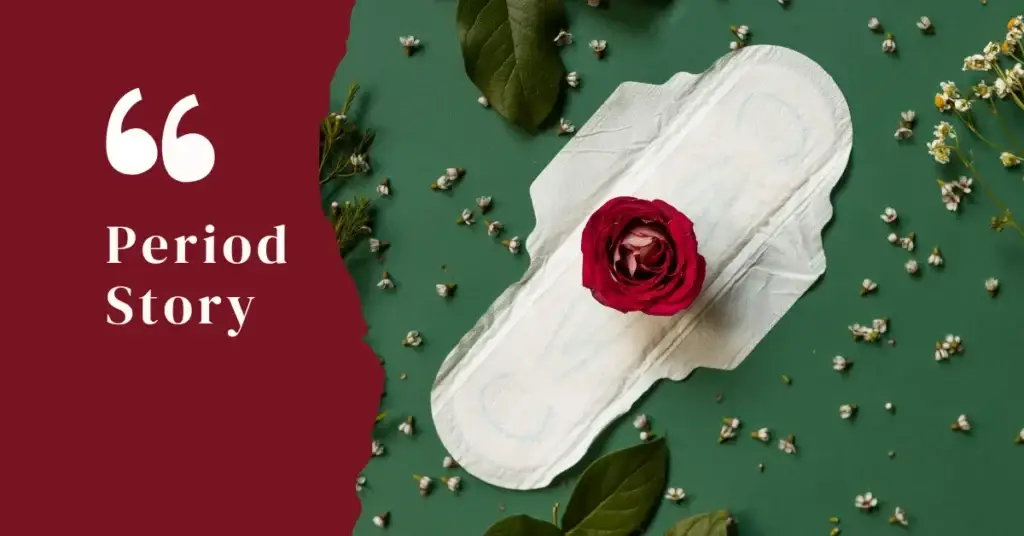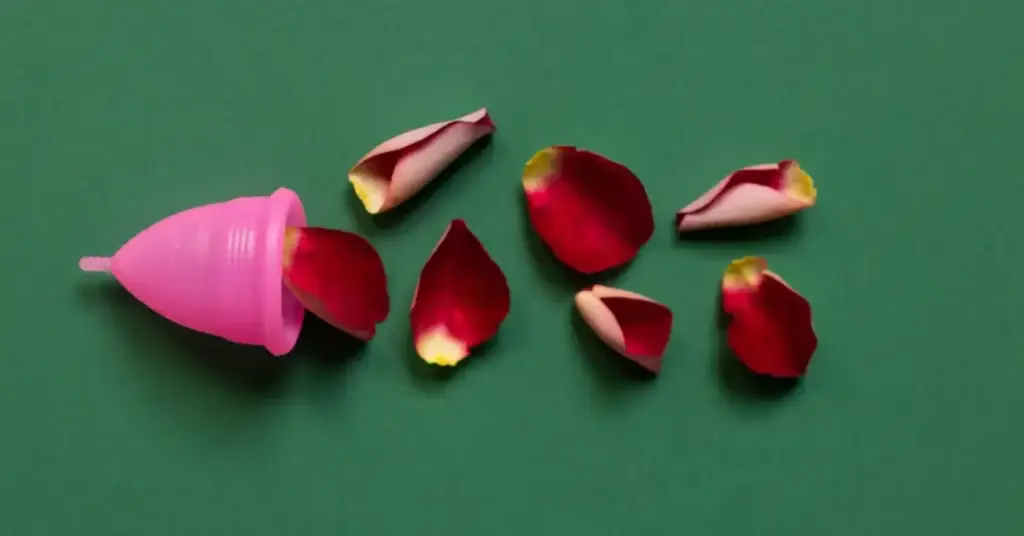In this article, I’ll share my first-period story—the day it happened, how I felt, and how I navigated the experience. I’ll also provide essential tips for managing periods, whether you’re a beginner who’s just starting or someone looking for advice on how to make this time of the month a little easier.
Periods are a natural part of life, yet they often come with a mix of emotions, confusion, and even fear, especially for those experiencing them for the first time. For many, the idea of getting a period can feel overwhelming.
There’s so much to learn, from understanding what’s happening to your body to figuring out how to manage the physical and emotional changes. It’s a journey that can feel isolating, but it doesn’t have to be.
Periods are more than just a biological process; they’re a shared experience that connects us. By talking openly about them, we can break the stigma and create a space where everyone feels supported and informed. So, let’s dive into the story of periods, how they start, and how to navigate this journey with confidence.

My First Period Story
I was 13 years old when I got my first period. I’ll always remember the day I got my first period: November 6, 2020. It was a Friday, and the day started like any other.
I went for a walk with my family a couple of hours before, and I kept saying I felt bloated, nauseous, and crampy. I thought I had eaten something weird or maybe even had food poisoning.
Later that evening, I took a shower and settled down to watch TV. I was eating some popcorn, but it made me feel even more bloated, so I stopped and decided to go to the bathroom.
a. The Moment It Happened
I wasn’t sure what to expect. I had heard stories about periods, but nothing could have prepared me for the reality. When I wiped, I noticed a reddish-pink-purplish light color. At first, I didn’t even see it. My mom was in the bathroom with me, helping my little brother brush his teeth, and she noticed it too.
We locked eyes, and it hit us both at the same time: I had gotten my period. I was in complete shock. My legs were shaking, and I felt frozen. My mom, on the other hand, was clapping and crying with excitement. She was so happy, and I was just sitting there in disbelief.
b. The Aftermath
My mom quickly grabbed a pad from the drawer and helped me put it on. I kept repeating, “This is not how I pictured it happening at all.” I didn’t expect it to happen at night, and I certainly didn’t think I’d get my period at 13. My mom got hers at 15, so I thought I had a couple more years.
Also Read: How to Tell Mom – I Got Periods
That night, I texted my best friend the Japanese flag emoji—our little inside joke for when we got our periods. She had gotten hers before me, so she knew exactly what it meant. She was so excited for me, and it felt good to have someone to share the moment with.
c. Reflecting on the Experience
Looking back, I realize how unprepared I was, even though I thought I knew what to expect. I had heard stories from friends and family, but nothing compares to experiencing it yourself. The mix of emotions—shock, confusion, and even a little fear—was overwhelming at first. But having my mom there made a huge difference. Her excitement and support helped me feel less alone at that moment.
I also learned that periods don’t always happen the way you think they will. I imagined it would be this big, dramatic moment, but it was actually pretty quiet and unexpected. And while it felt strange at first, it was also a reminder that my body was growing and changing in ways I couldn’t control.
Why Sharing My Story Matters
I’m sharing my first-period story because I want others to know that it’s okay to feel unsure or even scared when it happens. It’s a big moment, and everyone’s experience is different. But no matter how it happens, it’s a natural part of life, and it’s something we all go through.
If you’re reading this and haven’t gotten your period yet, don’t worry. It might feel overwhelming at first, but you’ll figure it out. And if you’ve already started, I hope my story helps you feel less alone. Periods are a shared experience, and by talking about them openly, we can support each other and break the stigma.

Why Periods Should Be Celebrated
Despite the discomfort, periods are a sign that your body is healthy and functioning as it should. They signal that you have the ability to create life. Women and anyone with a uterus are amazing because they have the power to bring new life into the world. It’s easy to focus on the cramps, the bloating, and the mess, but periods are also a reminder of how incredible our bodies are.
Every month, your body goes through a cycle to prepare for the possibility of creating life. Even if you’re not planning to have children anytime soon (or ever), your period is a testament to your body’s strength and resilience. It’s a natural process that has been happening for centuries, and yet, it’s still something many people feel uncomfortable talking about.
So, the next time you’re feeling weak, exhausted, or gross, remind yourself: “I can create humans. I’m pretty darn freaking amazing.” It’s not just about the physical ability to have children—it’s about the strength it takes to go through this every month. We walk around, go to school or work, and live our lives while dealing with cramps, fatigue, and everything else that comes with periods. That’s something to be proud of.
Periods are also a reminder that we’re not alone. Every person with a uterus goes through this, and it’s something that connects us. By talking openly about periods, we can break the stigma and support each other. So, let’s celebrate our periods—not just for what they represent but for the strength and resilience they remind us we have.

5 Essential First-Period Tips for Beginners
If you’ve just gotten your period or are preparing for it, here are 5 essential tips for periods for girls that will help you navigate this new experience. These tips are based on my own journey and what I’ve learned along the way. Let’s dive in!
1. Invest in Dark Sweatpants
You need a pair of dark, comfortable sweatpants specifically for your period. Trust me, they’ll be your best friend during those days. I have a pair of black sweatpants that I wear during my period, and they’re a lifesaver.
When I got my first period, I was so scared of staining my favorite white sweatpants that I immediately changed into a pair of black ones that were way too big for me. I looked like I was wearing a diaper, but it gave me peace of mind.
Dark sweatpants are practical, comfortable, and perfect for those days when you just want to feel cozy and secure. They’re also great for hiding any accidental leaks, which can happen, especially when you’re still figuring things out.
2. Stock Up on Different Types of Pads
Buy every kind of pad out there: regular ones, ones with wings, overnight pads, and pantyliners. You’ll need different types to adjust to your flow.
I remember my mom gave me a pad with wings on my first period, and it felt like a diaper, but it worked. Pads can feel bulky and awkward at first, but they’re a great option for beginners. I started with regular pads, but as my flow changed, I switched to ones with wings for extra security.
Overnight pads are thicker and longer, which is great for heavy flow days or when you’re sleeping. Pantyliners are perfect for lighter days or when you’re just spotting. Having a variety on hand ensures you’re prepared for whatever your period throws at you.
3. Rest and Take It Easy
Your body is going through a lot, so don’t be hard on yourself. Rest, watch your favorite show, and eat something you enjoy.
Periods can be exhausting. Between the cramps, bloating, and fatigue, it’s important to listen to your body and give yourself permission to slow down.
I remember feeling so weak during my first period that I just wanted to lie in bed all day. And you know what? That’s okay. Resting is not lazy; it’s necessary.
So grab your favorite snacks, curl up under a blanket, and take it easy. I like to watch Gilmore Girls on Netflix and eat chocolate during my period.
You deserve to relax and recharge during this time.
4. Get Dark Bed Sheets
Accidents happen, and dark bed sheets can save you from stains. It’s a small but practical tip that makes a big difference.
When you’re on your period, especially at night, there’s always a chance of leaks. Dark sheets are a great way to avoid embarrassing stains and make cleanup easier if an accident does happen.
I haven’t bled on my sheets yet, but I’ve heard stories, and I’m thinking of getting darker sheets just in case.
If you’re worried about staining your sheets, invest in a dark-colored set.
It’s a simple way to give yourself peace of mind and avoid unnecessary stress.
5. Embrace Your Period
While it’s easy to focus on the discomfort, try to see your period as a sign of strength. It’s a reminder of your body’s incredible ability to create life. Every time I feel weak or gross, I remind myself that I’m capable of creating humans, and that’s pretty amazing.
Periods can be messy, painful, and inconvenient, but they’re also a testament to how powerful our bodies are. I used to dread my period, but now I try to see it as a reminder of my strength. Yes, it’s uncomfortable, but it’s also a sign that my body is healthy and functioning as it should.
So, the next time you’re feeling down about your period, remind yourself: “I can create humans. I’m pretty darn freaking amazing.”
Final Thoughts
Getting your period for the first time can be overwhelming, but it’s also a milestone. It’s a sign that your body is growing and changing. If you’re reading this and haven’t gotten your period yet, relish these moments. And if you’ve already started, I hope my story and tips help you feel more prepared and confident.
Remember, periods are natural, and there’s no shame in talking about them. Let’s normalize these conversations and support each other through this journey.
You might love …
 First Period Guide
First Period Guide  First Period Guide
First Period Guide  First Period Guide
First Period Guide  First Period Guide
First Period Guide  First Period Guide
First Period Guide  First Period Guide
First Period Guide Disclaimer
The information provided in this article is for educational and informational purposes only. It is not intended as medical advice, diagnosis, or treatment. Always consult a qualified healthcare professional before making any decisions regarding your menstrual health. If you experience severe pain, irregular cycles, or other concerning symptoms, seek medical attention.